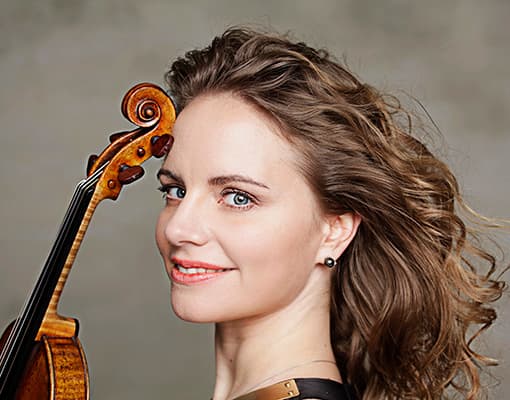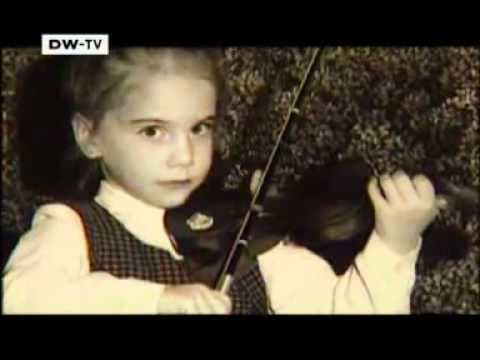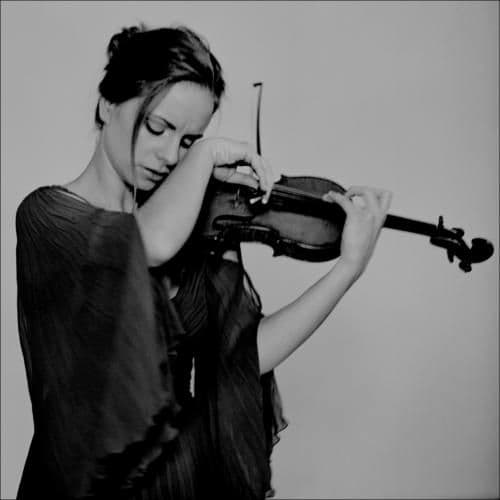The German classical pianist and violinist Julia Fischer was born on 15 June 1983 in Munich. Her parents Viera Krenková and Frank-Michael Fischer, a mathematician from East Germany, met as students in Prague. Julia started playing the violin around the age of four and received her first lessons from Helge Thelen. However, she also started taking piano lessons from her mother.

Julia Fischer
As Fischer recalled, “My mother is a pianist and I wanted to play the piano as well, but since my elder brother also played the piano, I thought it would be nice to learn another instrument. I agreed to try out the violin and stayed with it.” Her mother has the strong belief that musical education of any kind should include piano fundamentals to extend one’s repertoire and knowledge of harmony, theory, and style. Fischer started her formal violin education at the Leopold Mozart Conservatory in Augsburg under Lydia Dubrowskaya at the age of eight, and one year later was admitted to the Munich University of Music and Performing Arts, studying with Ana Chumachenco.
Julia Fischer Performs Glazunov’s Violin Concerto in A minor, Op. 82
Fischer remembers, “The first piece I learned at the age of nine from Ana Chumachenco was the Sarasate Romanza andaluza. I really enjoyed this music; it was virtuosic, so technical very demanding, but not virtually unplayable like Paganini. It was full of wonderful melodies, usually without tragic overtones.” Fischer made her first public appearance at the age of twelve, and as a teenager confesses to having been greatly influenced by Glenn Gould, Evgeny Kissin, and Maxim Vengerov.

Julia Fischer as a young violinist
Fischer remembers that when turning into a teenager, her violin training changed fundamentally. “I tended more and more to play the serious and great repertoire, Bach, Mozart, Beethoven, the major Romantic violin concertos and sonatas.” Despite her enormous talent, Fischer had “a completely normal childhood. I finished high school, and I was never homeschooled or anything. Because of that, I couldn’t have a full concert calendar until I was 19. I always had to consider school. At the time it was hard, but with hindsight, it was extremely healthy. I wasn’t simply thrown into an adult world at the age of 14.”
Pablo de Sarasate: Spanish Dances, Op. 22 – No. 1. Romanza andaluza (Julia Fischer, violin; Milana Chernyavska, piano)
Fischer began exploring the music of Bach on a daily basis on the piano at the age of seven and on the violin from the age of nine. She explains, “as far as I am concerned, his works represent the fountainhead of music and the basis for all musicians. My day has to begin with Bach, and I find it very difficult to concentrate on the music of another composer before having cleansed myself, as it were, with Bach. Furthermore, he is the composer who plays the most important role in my memories of childhood and development.”

The young Julia Fischer at the piano
At age eleven, Fischer attended a violin class given by Yehudi Menuhin, in which he talked about the Partita in B minor. “Although he was almost 80 years old at the time, he displayed more energy than I had seen before in a human being. The imagination he used to bring a phrase to life! Not one futile or unmusical note did he play. He put so many ideas into each ornament, that my head was almost bursting straight after the first movement. After the class, many colleagues and other violin teachers present told me that not everything had been stylistically correct and that one shouldn’t really play Bach that way. Well, that remains a matter of taste. In any case, after this class, I enjoyed playing Bach more than ever.”
J.S. Bach: Violin Partita No. 1 in B minor, BWV 1002 (Julia Fischer, violin)
Fischer is not only known for her breathtaking precision, her perfect understanding of rhythm and tension but also for her strong personal opinions. “I really can’t deal with social media, I don’t use Facebook, Twitter, or Instagram,” Fischer explains, “because I want to be able to get in contact with my audience in a more controlled, and maybe less frequent way than many of my colleagues.”

As such, she established an online platform, the “JF Club” that allows her to communicate directly with her fans. It presents exclusive audio and video footage, plus personal insights into her music and her work. Fischer often wonders how to get more people excited by classical music, and “how to let people know that, from my point of view, the common separation between serious and light music leads nowhere. The only distinction I find useful is between good and bad music.” For Fischer, the purpose of a concert is not to amuse or entertain the audience. “The purpose of a concert, and of classical music as a whole, is to inspire people to think in one way or another. I don’t go on stage as part of the entertainment world but as part of the art world. I still stand by these words when I’m asked why I refuse to do crossover; I don’t think crossover is the right way to make classical music popular.”
For more of the best in classical music, sign up for our E-Newsletter
